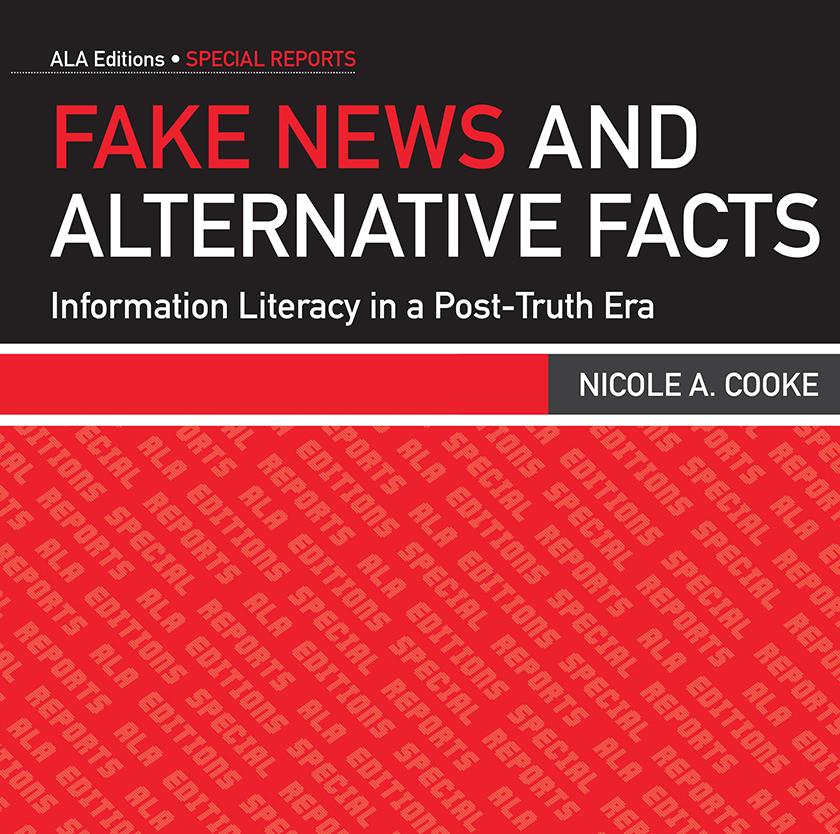
Talk of so-called fake news, what it is and what it isn't, is front and center across the media landscape, with new calls for the public to acquire appropriate research and evaluation skills and become more information savvy. But none of this is new for librarians and information professionals, particularly for those who teach information literacy. In "Fake News and Alternative Facts: Information Literacy in a Post-Truth Era," a new American Library Association (ALA) Editions Special Report, Assistant Professor and MS/LIS Program Director Nicole A. Cooke argues that the current situation represents a golden opportunity for librarians to impart these important skills to patrons, regardless of their age or experience.
In this report, readers will:
- learn more about the rise of fake news, particularly those information behaviors that have perpetuated its spread;
- discover techniques to identify fake news, especially online; and
- explore methods to help library patrons of all ages think critically about information, teaching them ways to separate fact from fiction.
Cooke's research and teaching interests include human information behavior (particularly in an online context), critical cultural information studies, and diversity and social justice in librarianship (with an emphasis on infusing them into LIS education and pedagogy). She was named a "Mover & Shaker" by Library Journal in 2007 and was the 2016 recipient of ALA's Equality Award and the Achievement in Library Diversity Research Award presented by ALA's Office for Diversity, Literacy & Outreach. She has edited and authored several books, including "Information Services to Diverse Populations."
"I'm excited to be able to contribute to this important conversation," Cooke said of her special report. "I hope this work will help LIS professionals engage with issues of fake news, misinformation, and disinformation in new and innovative ways."